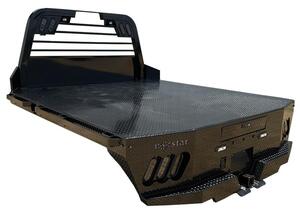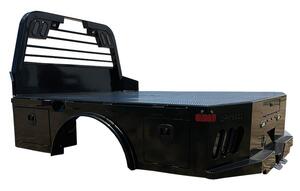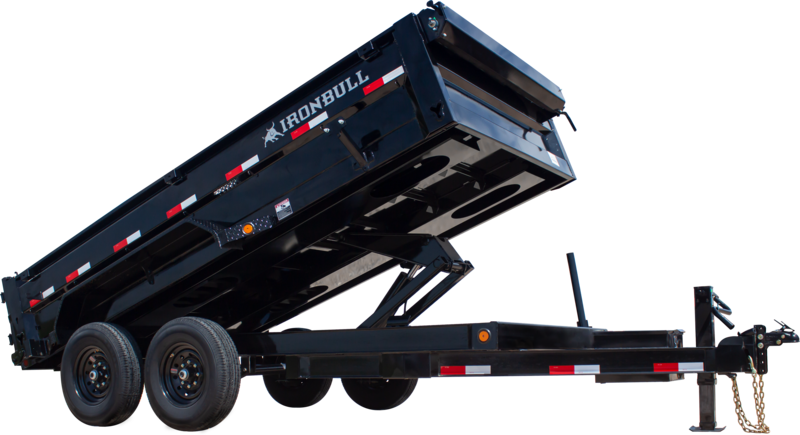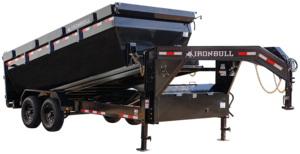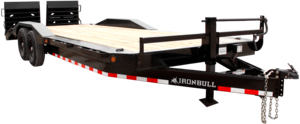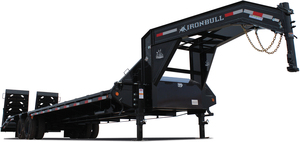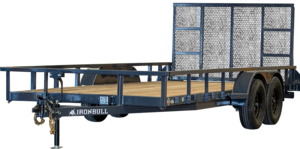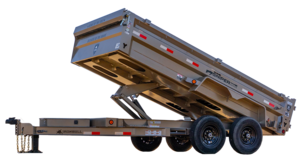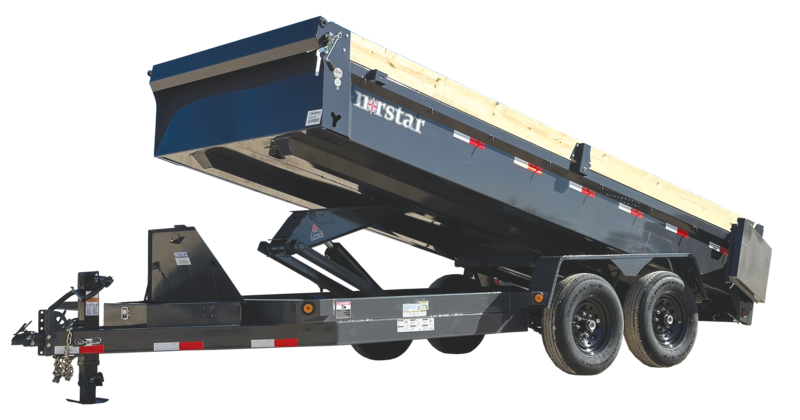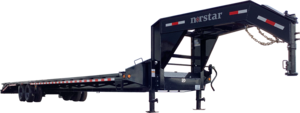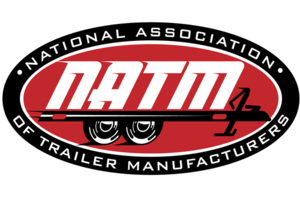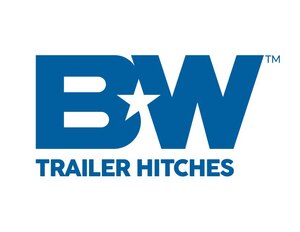Top Signs to Know When to Replace Trailer Tires
Trailer tires are an important part of every trailer because they support the weight of the trailer and its load.
Unlike vehicle tires, trailer tires are built to handle a particular sort of load and terrain. They are specially designed to withstand the pressure of the load, the forces of cornering and braking, and the rough surfaces of roads and highways.
In this article, we'll discuss when to change trailer tires so that your trailer stays in good shape and you keep a pleasant and safe trip.
Importance of Regular Tire Maintenance and Replacement

Tire maintenance and replacement are required regularly to ensure safe and efficient vehicle operation. Tires are the sole component of a vehicle that makes contact with the road and play an important role in traction, steering control, and braking performance. Tire maintenance and replacement can assist in extending tire life, increasing fuel efficiency, and lessening the chance of an accident.
Signs That It's Time To Replace Your Trailer Tires
Regular inspection and maintenance of trailer tires are crucial to ensure safe and efficient trailer operation. However, even with proper care, trailer tires can wear out over time and need replacement.
Knowing the signs that it's time to replace your trailer tires can help prevent accidents and ensure that your trailer is always roadworthy. Here are the common signs that indicate it's time to replace your trailer tires:
Worn Tread
Wear on the tread is one of the most obvious indicators that it's time to replace your trailer tires. As the tread on your trailer tires wears out, it loses some ability to offer traction and holds on the ground.
Cracking or Bulging
If you see any cracks or bulges on the tire sidewall or tread area, it's another indication that it's time to replace your trailer tires. These can be caused by exposure to the elements, improper storage, or excessive load, leading to tire failure and potential accidents.
Uneven Wear
If you notice uneven wear on your trailer tires, it may be time to replace them. Uneven wear can be caused by misalignment, improper inflation, or overloading, reducing handling performance and increasing the risk of accidents.
Age
Trailer tires can age even if they have not been used regularly. And if you’re curious, how long are trailer tires good for? Well, regardless of their visual condition, tires older than six years should be replaced as a safety precaution.
Punctures or Cuts
If your trailer tire has sustained punctures or cuts in the tread or sidewall, it's time to replace it. Driving on a damaged tire can be dangerous and increase the risk of a blowout, so it's best to replace it as soon as possible.
Causes of Trailer Tire Damage

Trailer tires are designed to handle heavy loads and rugged terrain but can still become damaged and require replacement. Understanding the causes of trailer tire damage can help prevent accidents and prolong tire life. In this section, we will enumerate the common causes of trailer tire damage.
Overloading
One of the most common causes of trailer tire damage is overloading. When a trailer is overloaded, it puts excessive pressure on the tires, leading to premature wear, blowouts, and other tire failures. Stay within the manufacturer's recommended weight limits for your trailer and tires to avoid overloading.
Underinflation
Another common cause of trailer tire damage is underinflation. When a tire is underinflated, it flexes more, generating more heat and leading to premature wear and tire failure. Check the tire pressure regularly, especially before long trips, to ensure your trailer tires are properly inflated.
Overinflation
Overinflation is another cause of trailer tire damage. An overinflated tire can lead to uneven wear, reduced handling performance, and increased risk of blowouts. Follow the manufacturer's recommended inflation pressure for your trailer tires.
Road hazards
Potholes, debris, and sharp objects on the road can cause punctures, cuts, and other damage to trailer tires. To avoid damage, try to avoid rough or uneven roads as much as possible, and examine your tires for signs of damage on a regular basis.
Improper storage
Improper storage of trailer tires can also lead to damage. Exposure to direct sunlight, moisture, and extreme temperatures can cause cracking, rotting, and other forms of damage. Store your trailer tires in a cool, dry place away from direct sunlight.
Age
Trailer tires can age even if they have not been used regularly. Regardless of their visual condition, tires older than six years should be replaced as a safety precaution.
Improper installation
Finally, improper installation can also cause trailer tire damage. Be sure to follow the manufacturer's instructions when installing new tires, and have a professional mechanic inspect your tires and rims to ensure that they are properly aligned and balanced.
Where To Buy A Trailer Tire
When it comes to buying a new trailer tire, there are many options available both online and in-store.
One reliable option is Norstar, a leading supplier of trailer parts and accessories. We offer a wide range of trailer tires and wheels to suit various applications and budgets.
Here are some trailer parts available at Norstar:
16" 14 ply Trailer Tire & Wheel - 235/85R16 - 8 hole
A 16" 14-ply trailer tire and wheel with an 8-hole pattern is common for heavy-duty trailers, such as those used for commercial or industrial purposes.
16" 10 ply Trailer Tire & Wheel - 235/80R16 - 8 hole
A 16" 10-ply trailer tire and wheel with an 8-hole pattern is common for medium-duty trailers, such as those used for recreational or light commercial purposes.
Front Bumper Spare Tire Mount
A front bumper spare tire mount is an attachment that allows you to mount a spare tire directly to your vehicle's front bumper. This is an excellent addition for off-road vehicles or trailers that may face harsh terrain, as it allows for simple access to a spare tire in the event of a flat or puncture.
Tips for Maintaining Your Trailer Tires
Routine maintenance is essential to keep your trailer tires in good shape and ensure safe operation on the road. It’s important to know how to keep trailer tires from dry rotting and just overall declining. Here are some important tips for maintaining your trailer tires:
Check tire pressure regularly
Check tire pressure at least once a month using a reliable gauge and adjust as necessary to match the manufacturer's recommended PSI. Properly inflated tires help avoid blowouts, improve fuel efficiency, and extend tire life.
Inspect tires for damage
Inspect your tires regularly for signs of deterioration, such as cuts, punctures, cracks, bulges, or uneven wear. These flaws might lead to tire failure and jeopardize the safety of your vehicle. If you discover any damage, replace the tire immediately to avoid additional damage.
Rotate your tires
Rotating your trailer tires regularly can help ensure even wear and extend the lifespan of your tires. Follow the manufacturer's recommended rotation pattern, which may vary depending on the tire type and vehicle usage. In general, rotating your tires every 5,000 to 7,500 miles is recommended.
Keep tires clean
Keeping your tires clean can help avoid damage and extend their lifespan. Wash your tires with soap and water on a regular basis to remove dirt, grime, and other particles that might cause corrosion or other damage. Avoid using abrasive or strong chemicals that might harm the tire rubber.
Avoid overloading
Overloading your trailer can cause excessive wear and damage to your tires, leading to premature failure and compromising your safety on the road. Follow the manufacturer's recommended weight capacity and evenly distribute the load across the trailer to prevent overload.
Good Tires, Safe Travels
Ultimately, understanding when to change trailer tires is critical for road safety. Inspect your tires regularly for wear and deterioration, and replace them as needed. You can find and shop for the tires and other parts you need at Norstar.
And by following the guidelines provided in this article, you may guarantee that your trailer is safe and ready to hit the road.





